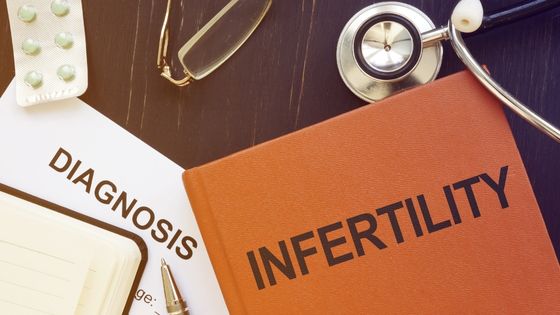Infertility is a type of reproductive health that makes a couple (of the opposite sex) unable to become parents of a child. Whether you are a male or female, it can occur to you during your reproductive age (20-35 years). You know about your infertility when you visit a fertility clinic in your locality and the doctor advises IVF treatment after going through the reports of a few recommended tests.
As a female, you are not alone in suffering from infertility. As per the World Health Organisation, the world has around 48 million couples and 186 million individuals with fertility problems. You should move ahead to treat your infertility if you have and wish to be a mom. Before having treatment, you should educate yourself on female infertility. Here, in this blog, you will briefly know all about female infertility.

Female infertility
It is a reproductive health issue that prohibits you from having a conception or makes you struggle a lot to conceive. You can know you have fertility problems through a few tests when you notice you are unable to get pregnant even after making an effort for 6 months to a year (6-month time is for females between 20 and 35 years and 1 year time is for females above 350.
Signs of infertility in young women
The primary sign of female infertility is an inability to conceive. Other signs of infertility in young women could be:
- Too long menstrual cycle (usually of 35 or more days)
- Too short menstrual cycle (lower than 21 days)
- Irregular periods or no period can indicate ovulation disorders
Causes of female infertility
Pregnancy occurs when a female’s reproductive system works well. The pregnancy occurrence process involves:
- Release of a mature egg from either of the two ovaries
- Travel of the released egg to one of the fallopian tubes
- Sperm meeting with the egg in the fallopian tube
- Egg fertilization
- Transportation of the fertilized egg from the fallopian tube to the uterus
- Development of the uterine lining and fetus development inside the uterus
Suggest to Read:- Which Types Of Drugs Can Affect Your Fertility Levels?
Any obstruction or irregularity in the entire process leads a woman to have infertility. Here are possible causes of infertility in young women:
- Ovulation disorders
- PCOS (Polycystic ovary syndrome)
- Hypothalamic dysfunction
- Primary ovarian insufficiency
- Blocked or damaged fallopian tubes due to scars or infections
- Endometriosis
- Uterine or cervical issues
- Unexplained infertility
Risk factors
Certain factors put a female at a higher risk of infertility. Here are some possible risk factors for female infertility:
- Age
- Smoking
- Weight (overweight or underweight)
- Alcohol consumption
- Highly active and unprotected sexual life
Diagnosis and Treatment
As a female, you should immediately see a fertility expert if your age is above 35, your conventional effort for 6-12 months does not help you get pregnant, or you notice irregular periods or no periods. After knowing your health, sexual health, and lifestyle habits while interacting with you, the doctor can recommend the following tests/screenings:
- Ovulation testing
- Ovarian reserve testing
- Hysterosalpingography
- Hormone testing
- Pelvic ultrasound
- Hysteroscopy
- Laparoscopy
- Genetic Testing
After going through the reports of the recommended tests/screenings, the doctor can decide what treatment will be more suitable and effective for you. The recommended treatment options can include:
- Fertility drugs
- Hormonal injections/pills
- Tubal surgeries
- Laparoscopic or hysteroscopic surgery
- IUI (Intrauterine insemination)
- IVF (in vitro fertilisation)
Prevention
Diagnosis and treatment are crucial for you if you have infertility. In case you are not suffering fertility problems, you can maintain a safe distance from the same by making a few changes in your lifestyle. Here are some useful tips for you to preserve your fertility:
- Always take a healthy diet with seasonal fruits and vegetables
- Exercise regularly
- Manage your weight and avoid being underweight or overweight
- Quit smoking
- Limit drinking or avoid having alcoholic beverages
- Try to have no stress and manage it if it occurs to you
Conclusion
Female infertility relates to a reproductive health issue that obstructs a young woman from getting pregnant. Knowing the symptoms, causes, risk factors, diagnosis & treatment options, and preventive tips can help you make a wise decision when you wish to expand your family.

















